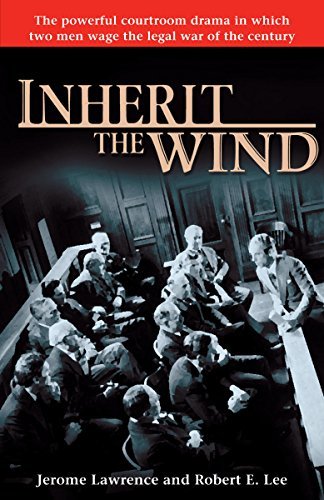What do you think?
Rate this book


137 pages, Kindle Edition
First published January 1, 1955
Be it resolved, that men are descendants of monkeys and not created from the image and likeness of God.I heard about this play when I was 8 or 9 years old. I was then in a Pacific island and it was late morning of a Good Friday and my mother told me to buy something from a store. In the Philippines, Maundy Thursday, Good Friday and Black Saturdays were the days of a year in the island when there was an eerie silence all around the town. All you could hear were mournful singing of the pasyon, written in a local language, being sung and it recounted the passion and resurrection of Jesus Christ. However, on that Good Friday morning, I heard the local translation of this book, Inherit the Wind being dramatized over the local radio of our neighbor.
"All motion is relative. Maybe it's you who've moved away by standing still."